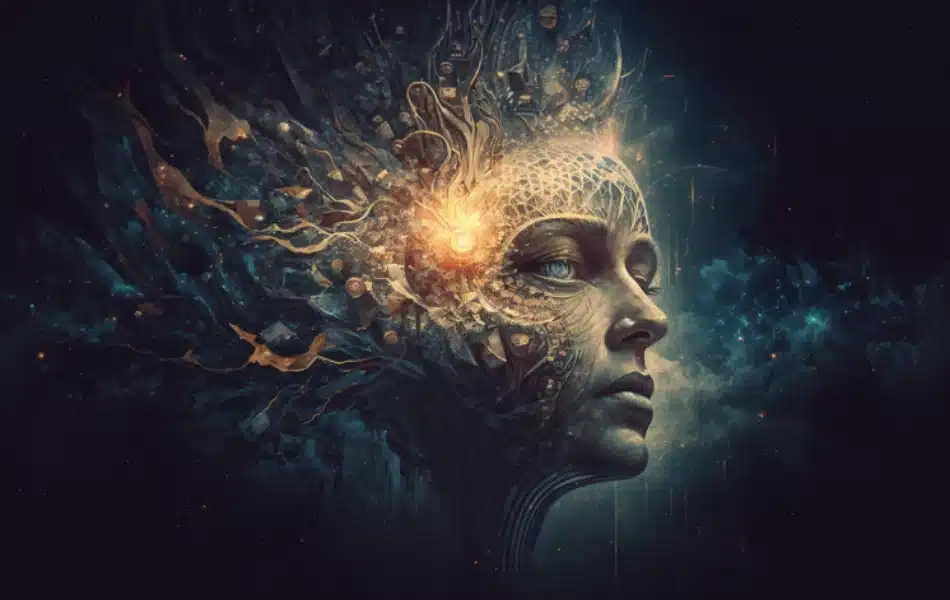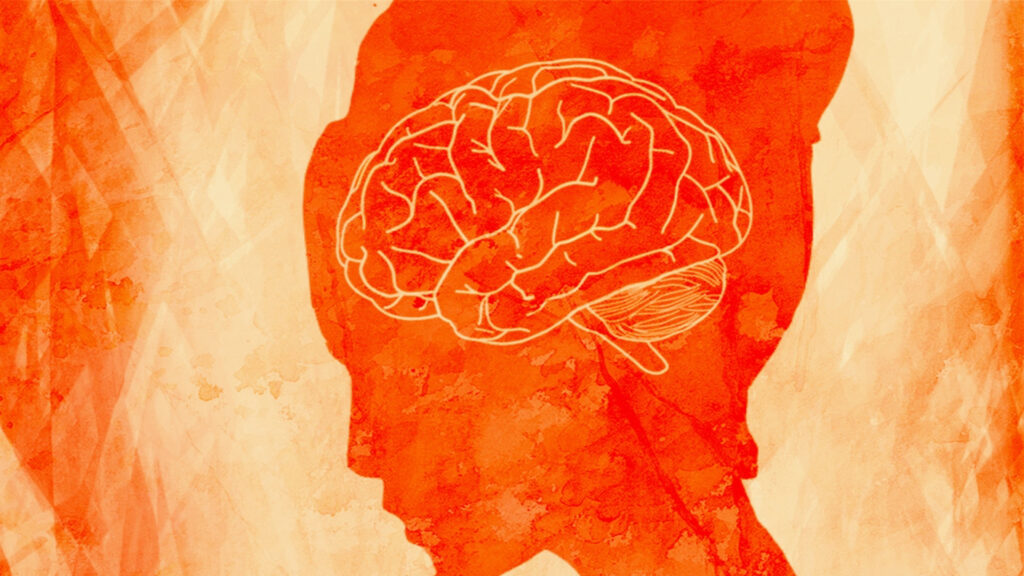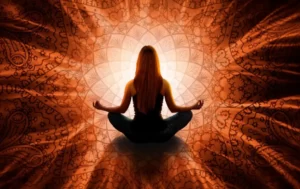For centuries, philosophers have grappled with the nature of consciousness, producing a vast body of work that contemplates its mysteries from every conceivable angle. In parallel, scientists—particularly psychologists and neuroscientists—have sought to unravel the biological underpinnings of consciousness, exploring how the complex interplay of brain structures and processes gives rise to conscious experience. Yet, despite substantial advancements, the understanding of consciousness remains elusive, its comprehensive definition slipping through our grasp like a phantom.
What is human consciousness?
Human consciousness, a complex construct that has intrigued scholars, philosophers, and scientists for centuries, can be broadly conceptualized as the subjective awareness and internal perception of external phenomena, coupled with the ability to experience feelings, thoughts, memories, and a sense of selfhood.
On a fundamental level, consciousness refers to the state of being aware and awake, able to perceive, comprehend, and interact with one’s surroundings. However, its essence transcends mere wakefulness and extends into the realm of self-awareness and personal identity – it is the cognitive ability to recognize oneself as a distinct entity separate from the environment, others, and even from one’s own thoughts and sensations.
Firstly, consciousness is often categorized into two primary components: phenomenal consciousness and access consciousness.
- Phenomenal consciousness encompasses the experiential, qualitative aspects of consciousness, sometimes referred to as ‘qualia’. This comprises the subjective experience of sensations such as the redness of a rose or the sharp, biting taste of a lemon.
- Access consciousness pertains to the cognitive, functional aspects of consciousness, particularly those involved with the manipulation of information. It is the state of being aware of and having the ability to reflect upon one’s thoughts and perceptions, and subsequently use this information for behavior and decision-making processes. It is, in essence, the capacity to access information, reason and communicate.
At a neurobiological level, consciousness is thought to emerge from complex network interactions within the brain. Neuroscientific theories posit that consciousness is the by-product of the integrated activity of distributed brain networks. The global workspace theory, for instance, proposes that consciousness arises from the broadcast of information across various brain networks, while the integrated information theory suggests that consciousness is a measure of the system’s ability to integrate information.
These theories offer valuable insights, yet they underscore the conundrum of consciousness, often termed ‘the hard problem’, as identified by philosopher David Chalmers. This problem addresses the question of how and why physical processes in the brain give rise to subjective experience. Despite extensive research, the mechanisms and pathways leading from neural activity to conscious experience remain unclear, reinforcing the enigma that consciousness presents to modern science.
In addition to the aforementioned biological perspective, it is important to note that consciousness also possesses a significant sociocultural dimension. This encapsulates the ways in which societal norms, cultural values, and language shape the individual’s conscious experience. Such perspectives highlight the intersubjective nature of consciousness, where it is not a solitary phenomenon but a product of individual interaction within a broader social framework.
Where does consciousness come from?

The origins of consciousness — how and where it arises — are subjects of extensive academic debate within diverse disciplines such as philosophy, cognitive science and neuroscience. Despite being a common facet of human experience, a definitive explanation for the emergence of consciousness remains elusive. However, several prominent theories and hypotheses attempt to address this question.
- Dualism: This theory, proposed by philosopher René Descartes, posits that the mind and body are separate entities. Descartes suggested that consciousness resides in the mind, separate from the physical brain. However, this theory has largely fallen out of favor in contemporary scientific thinking due to its inability to explain how a non-physical mind could influence the physical body and vice versa.
- Physicalism: In contrast to dualism, physicalism posits that consciousness arises from physical processes within the brain. This theory suggests that consciousness is an emergent property of complex computation among brain neurons. However, this doesn’t yet explain how these physical processes give rise to subjective experience – a dilemma known as the ‘hard problem’ of consciousness.
- Information Integration Theory: Proposed by neuroscientist Giulio Tononi, this theory suggests that consciousness arises from the organization of information within the brain. According to this theory, a system is conscious to the extent that it can integrate information. This approach attempts to quantify consciousness and has implications for both artificial intelligence and the study of consciousness in non-human animals.
- Global Workspace Theory: Proposed by cognitive psychologist Bernard Baars, this theory suggests that consciousness is a kind of ‘workspace’ in which information from various mental functions is brought together, processed, and broadcast back out. This theory posits that we’re conscious of information that’s in the global workspace and unconscious of information that’s not.
- Quantum Consciousness Theories: Some theorists propose that quantum mechanics, the branch of physics that governs the behavior of particles at the smallest scales, might play a role in consciousness. Notable proponents of this perspective include mathematician Roger Penrose and anesthesiologist Stuart Hameroff. However, these theories are controversial and not widely accepted due to the lack of empirical evidence and the conceptual leap from quantum physics to consciousness.
- Panpsychism: This philosophical theory posits that consciousness, or at least some form of simple-mindedness or proto-consciousness, is a fundamental aspect of the universe, present to some degree everywhere. Recent versions of this theory, such as Integrated Information Theory, suggest that the ability to integrate information, a property of certain complex systems, may be the basis for consciousness.
- Higher-Order Theories (HOTs): These theories posit that consciousness arises from thoughts about thoughts—the ability of a cognitive system to represent its own mental states. A conscious experience, therefore, involves not just a mental representation of the world but also a higher-order representation of that mental state.
In conclusion, theories of consciousness range widely in their perspectives, reflecting the complexity and enigmatic nature of consciousness. While each offers unique insights, none have yet provided a comprehensive and universally accepted explanation. The quest to understand consciousness remains one of the most exciting and challenging areas of scientific and philosophical inquiry.
Functions of consciousness
Consciousness, the state of being aware of and able to think and perceive one’s surroundings, thoughts, and feelings, serves many critical functions. Here are some key functions of consciousness:
- Perception: Consciousness allows for the active perception of our environment. This includes recognizing and interpreting sensory stimuli (like sights, sounds, smells, tastes, and physical touch) to construct our understanding of the world.
- Attention and focus: Through consciousness, we can direct our attention and maintain focus on specific aspects of our environment or on tasks at hand, allowing us to engage with the world in a meaningful and targeted manner.
- Memory and learning: Consciousness plays a crucial role in the processes of learning and memory. Our conscious experiences form the basis of our memories. Additionally, conscious awareness and effort often aid in learning new skills or acquiring new knowledge.
- Self-awareness: One of the higher-order functions of consciousness is the ability to perceive oneself as a distinct individual, separate from the environment and other individuals. This includes recognizing one’s own thoughts, emotions, and physical state.
- Decision-making and problem solving: Conscious thought is critical for complex decision-making and problem-solving processes. It allows for weighing alternatives, assessing potential outcomes, and making reasoned judgments.
- Emotional experience: Consciousness is integral to our experience and understanding of emotions. It allows us to feel and recognize our emotional state, and react accordingly.
- Integration of information: Consciousness aids in integrating different types of information (perceptual, emotional, memory-based) into a coherent whole, allowing for a unified and consistent experience of the world.
- Planning and imagination: Through conscious thought, we can plan for the future, visualize potential scenarios, and use our imagination creatively.
This list provides an overview of some major functions of consciousness, but it is not exhaustive. As our understanding of the brain and cognition advances, more functions and complexities of consciousness continue to be revealed.
States of consciousness
The understanding of states of consciousness can vary depending on the context in which they’re examined. However, in a psychological or neurological context, several recognized states of consciousness include:
Normal waking consciousness: This is the state we are in during our everyday routines, where we perceive our surroundings and react to them, demonstrating a clear sense of self and reality.
Sleep: A recurring state of consciousness characterized by relatively inhibited sensory activity, inhibition of nearly all voluntary muscles, and reduced interactions with surroundings. Within sleep, there are multiple stages including REM (Rapid Eye Movement) sleep and various stages of non-REM sleep, each associated with different brain wave activity.
Dreaming: Although it occurs during sleep, dreaming is often considered a separate state of consciousness due to the unique brain wave patterns, physiological responses, and subjective experiences that occur.
Hypnotic states: In a hypnotic state, individuals are suggested to experience changes in sensations, perceptions, thoughts, or behavior. The mechanisms and validity of hypnosis as a distinct state of consciousness are still a subject of ongoing scientific debate.
Meditative states: Achieved through various forms of meditation, these states often involve focused attention, and are associated with changes in brain activity and subjective experiences of calm, clarity, and insight.
Flow: This is a state of intense focus and diminished awareness of the passage of time that can occur during engaging activities. People in a flow state often feel a sense of joy and lose themselves in the task at hand.
Altered states of consciousness: Any state which is significantly different from a normative waking beta wave state. The cause may be psychological or physiological, such as hypnosis or anaesthesia, or it can be chemically induced through the use of psychoactive drugs.
Trance: Trance states are characterized by profound relaxation and suggestibility. They may be self-induced or facilitated by another individual or agent and are often used in religious or spiritual practices.
Psychedelic experiences: These are induced by the use of psychedelic substances. They are characterized by perceptual changes, such as hallucinations, and can also include profound changes in self-awareness or perspective.
5 Levels of consciousness
The conceptualization of levels of consciousness can vary considerably based on the theoretical or philosophical perspective in question. In psychology, many models propose different ‘levels’ or ‘layers’ of consciousness. While these vary in specifics, they generally revolve around themes of conscious, preconscious (or subconscious), and unconscious processes.
- Unconscious: At this level, mental processes happen outside of our conscious awareness. These processes can include implicit memory, habits, and primed responses. Unconscious processes influence feelings, judgments, and decisions without our overt awareness.
- Preconscious/Subconscious: This level consists of thoughts, memories, and feelings that we’re not actively thinking of but can easily bring into conscious awareness if necessary. For example, you might not be actively thinking about your phone number, but it’s stored in your preconscious and can be recalled when needed.
- Conscious: This level encompasses thoughts, feelings, and perceptions that we are currently aware of. It involves our current mental focus and attention, including active thought processes, sensory processing, and the experience of the present moment.
- Self-consciousness: This level refers to the awareness of oneself as a conscious individual. It involves self-reflection, introspection, and the ability to identify oneself as an individual separate from the environment and other individuals.
- Meta-consciousness: This level, also known as metacognition, involves awareness and understanding of one’s own thought processes. It’s thinking about thinking. Meta-consciousness can include recognition of mental states, self-assessment of one’s performance or abilities, and strategic planning about how to solve a problem.
This five-level model is one way of understanding the complexity and layered nature of human consciousness. It is not the only model, and other perspectives might categorize and name the levels of consciousness differently. Some might even include altered states of consciousness, such as those reached through meditation or with the use of certain substances, as additional levels. As research advances, our understanding of these levels continues to evolve and become more nuanced.
The nature of consciousness in Eastern philosophy
Eastern philosophy provides rich and varied perspectives on the nature of consciousness, derived from several distinct philosophical traditions such as Hinduism, Buddhism, and Daoism, each with its unique interpretations. These philosophies, which have evolved over millennia, emphasize experiential understanding and practical approaches to consciousness, often linking it to concepts of self, reality and enlightenment.
In Hindu philosophy, especially within the context of Advaita Vedanta, consciousness is a fundamental and universal reality. It is often equated with Brahman, the ultimate, all-encompassing reality, or Atman, the individual self. According to this tradition, the apparent diversity of the world is a product of Maya, or illusion, and the ultimate goal of human life is to realize the unity of Atman and Brahman, leading to a state of pure consciousness, often described as Sat-Chit-Ananda, or existence-consciousness-bliss.
Buddhism, in contrast, does not posit an enduring, autonomous self or soul. Instead, it proposes a theory of momentary consciousness, wherein consciousness is a succession of discrete moments, each giving rise to the next. In Theravada Buddhism, this is embodied in the concept of Dependent Origination (Paticcasamuppāda), which describes the interconnected, causal processes that give rise to suffering. Consciousness (Vinnana) is one of the twelve links in this chain. Mahayana Buddhism extends this understanding, introducing the concept of ‘storehouse consciousness’ (Alaya-vijnana), which stores karmic seeds that influence future existences.
In the Yogacara school of Buddhism, consciousness is discussed in terms of Eight Consciousnesses: the five sense consciousnesses (corresponding to sight, hearing, smell, taste, and touch), the mind consciousness (mano-vijnana), the defiled mental consciousness (klista-mano-vijnana), and the storehouse consciousness. These layers of consciousness interact with one another and with external and internal phenomena to shape individual perception and experience.
Daoism, another influential Eastern philosophy, does not directly define consciousness but discusses it implicitly within broader metaphysical and cosmological contexts. According to Daoist principles, the Dao, or ‘the Way’, is the fundamental, unnamable process of the universe. Aligning with the Dao, through a process of non-action (Wu Wei), naturalness (Ziran), and spontaneity, is considered a path toward harmonious existence. In this context, consciousness is seen as part of the holistic, dynamic flow of the Dao, interwoven with the natural world and the individual’s place within it.
Can Artificial Intelligence achieve consciousness?
One perspective, grounded in computational functionalism, posits that if an artificial system can emulate all relevant functions of a human brain, it should be capable of conscious experience. Proponents of this view point to the Turing Test, in which an AI’s ability to mimic human behavior—thought to indicate intelligence—forms the basis of evaluation. They argue that an advanced AI, with a sophisticated enough model of human cognitive processes, could achieve a form of consciousness.
Integrated Information Theory (IIT), one of the most mathematically rigorous theories of consciousness, offers another perspective. IIT argues that consciousness is a product of the brain’s capacity for integrated information. From this perspective, a sufficiently complex and integrated artificial system could potentially achieve consciousness.
However, these viewpoints face significant opposition. Critics argue that consciousness is not merely a product of computational processes or information integration. They maintain that the subjective quality of conscious experience—the so-called “hard problem” of consciousness—cannot be reduced to algorithmic processes. This view, influenced by philosophical positions such as property dualism and panpsychism, argues that consciousness may involve non-computational or irreducibly subjective aspects.
Further challenges arise from the biological and embodied nature of human consciousness. Some theories posit that our consciousness is inseparable from our specific embodiment and evolutionary history. According to these views, an AI, regardless of its computational prowess, would lack the requisite biological and embodied basis for consciousness.
As of LotusBuddhas knowledge, no AI system possesses anything resembling human consciousness. Current AI technologies, including advanced machine learning and neural networks, operate based on patterns, rules, and statistical correlations, without any subjective experience. They do not possess an understanding of the world, self-awareness, or conscious perception, and the processes that drive these systems are fundamentally distinct from those thought to underlie human consciousness.
Can consciousness survive after death?
Scientifically, the mainstream view holds that consciousness is closely tied to the functioning of the brain. When the brain ceases to function at death – as evidenced by the cessation of electrical activity and blood flow – the conscious experiences it generates are generally believed to end. This perspective, known as physicalism or materialism, posits that all aspects of consciousness are produced by physical processes within the brain and therefore cannot persist when these processes cease.
However, there are alternative views and theories. Some researchers have investigated phenomena such as near-death experiences (NDEs) and claims of past-life memories, particularly in children, as potential evidence of consciousness persisting beyond physical death. While these phenomena are certainly intriguing, interpretations vary widely. Skeptics argue that they could be explained by known or unknown psychological or physiological processes, such as the brain’s response to extreme stress. Others, however, see in these phenomena indications that consciousness may indeed extend beyond physical life.
From a philosophical perspective, dualism – the view that mind and matter are fundamentally distinct – leaves open the possibility that consciousness could survive the death of the physical body. However, dualism faces significant philosophical challenges and lacks empirical support.
Many religious and spiritual traditions around the world hold beliefs in some form of life or consciousness after death, often referred to as an afterlife, reincarnation, or rebirth. These beliefs, however, are typically based on faith, scripture, or personal spiritual experience rather than empirical evidence that can be evaluated scientifically.











